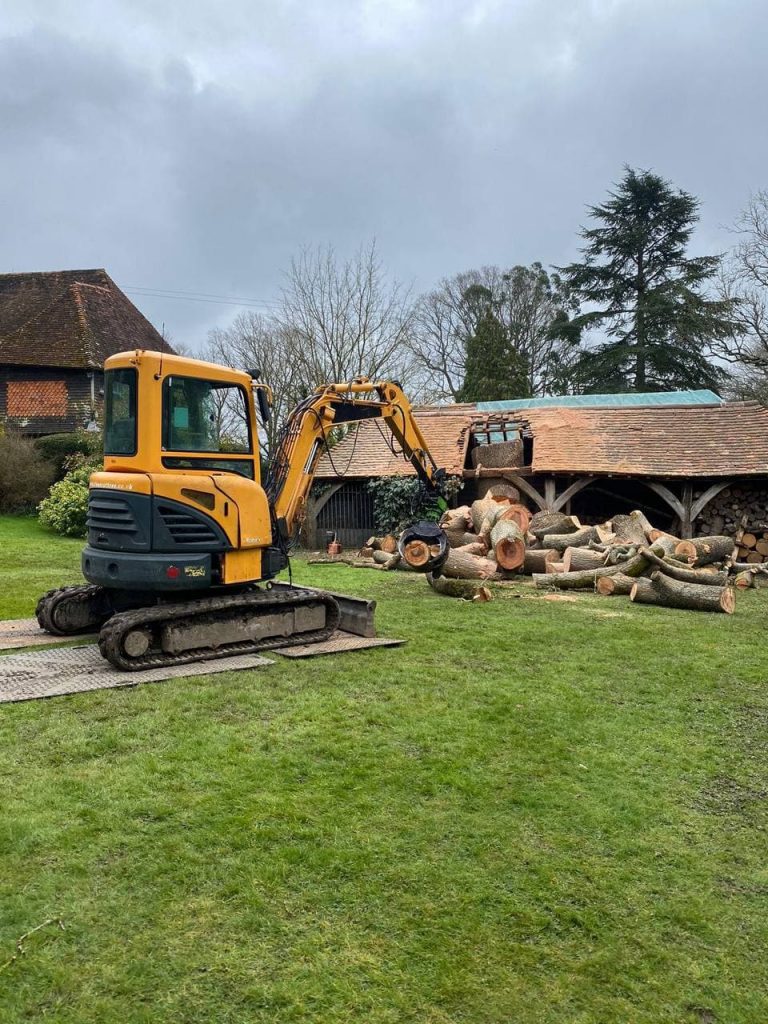Crown reduction is a skilled arboricultural technique designed to reduce the overall size of a tree’s canopy while preserving its natural shape and structural integrity. It’s often carried out to improve light penetration, reduce wind resistance, or manage the growth of a mature tree in a confined space. However, when attempted by untrained individuals, DIY crown reduction can cause more harm than good. At Folkestone Tree Surgeons in Folkestone, Kent, we regularly encounter the consequences of improper tree work — and the long-term impact it can have on safety, tree health, and property value.
What Is Crown Reduction?
Crown reduction involves the selective pruning of branches to decrease the height and/or spread of a tree’s crown. The aim is to maintain a balanced structure, reduce mechanical stress on limbs, and ensure the tree continues to thrive. It differs from topping or lopping, which are damaging and unregulated methods that can seriously compromise tree health.
Common Risks of DIY Crown Reduction
DIY crown reduction might seem like a cost-saving option, but it comes with a range of serious risks — both immediate and long-term.
Safety Hazards
Working at height with chainsaws or hand saws requires training, proper equipment, and awareness of safety protocols. DIY attempts can lead to:
- Falls from ladders or unstable branches
- Injuries from falling limbs
- Contact with power lines
- Use of inappropriate or poorly maintained tools
Damage to Tree Health
Without professional knowledge of tree biology and growth patterns, DIY cuts often:
- Remove too much foliage, stressing the tree
- Leave large wounds vulnerable to disease and decay
- Cause regrowth that is weak and unstable
- Trigger long-term decline or death of the tree
Legal and Planning Issues
In areas such as Folkestone, Kent, some trees are protected by Tree Preservation Orders (TPOs) or fall within conservation zones. Unauthorised work can lead to legal penalties. A qualified tree surgeon like Folkestone Tree Surgeons understands how to navigate permissions and carry out compliant work.
Poor Aesthetic and Structural Outcomes
Crown reduction is as much about aesthetics as it is about safety. Poorly executed work can result in:
- Uneven canopy shape
- Misshapen regrowth
- Excessive branch stubs
- Loss of visual appeal and property value
Why Professional Crown Reduction Is Essential
Professionally executed crown reduction ensures:
Correct Techniques Are Used
- Targeted pruning that promotes healthy regrowth
- Retention of key structural branches
- Cuts made at the correct location to encourage proper healing
Long-Term Tree Health
- Minimised stress on the tree
- Reduced risk of decay or pest infestation
- Balanced canopy that adapts to environmental conditions
Safety and Compliance
- Trained and insured professionals using specialist equipment
- Risk assessments before work begins
- Knowledge of local regulations in Folkestone, Kent
Conclusion
While DIY tree work may seem like a simple weekend task, crown reduction is a complex and potentially dangerous job that should only be undertaken by trained professionals. At Folkestone Tree Surgeons, we deliver safe, compliant, and effective crown reduction services that protect both your property and the long-term health of your trees.
If you’re considering crown reduction for a tree on your property in Folkestone, Kent, contact Folkestone Tree Surgeons for expert advice and a no-obligation consultation. Let us help you achieve the right results without the risks.
Call us on: 01303 765 498
Click here to find out more about Folkestone Tree Surgeons
Click here to complete our contact form and see how we can help with your tree’s needs.
